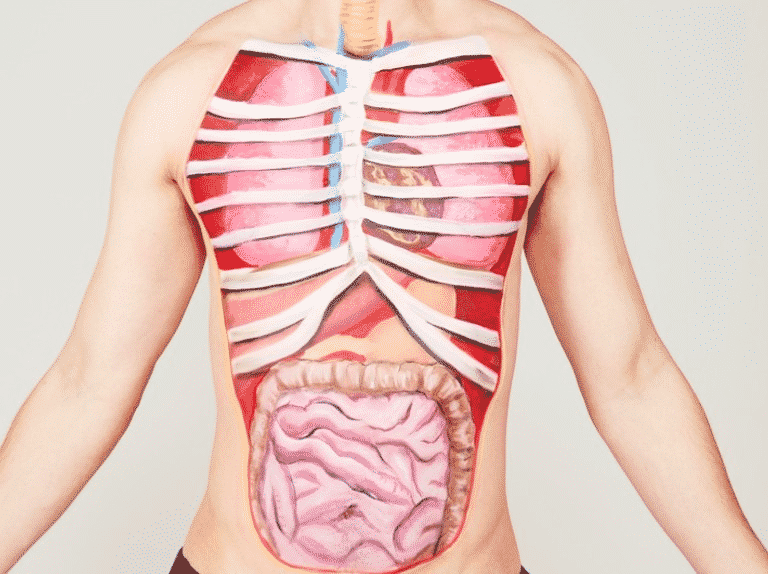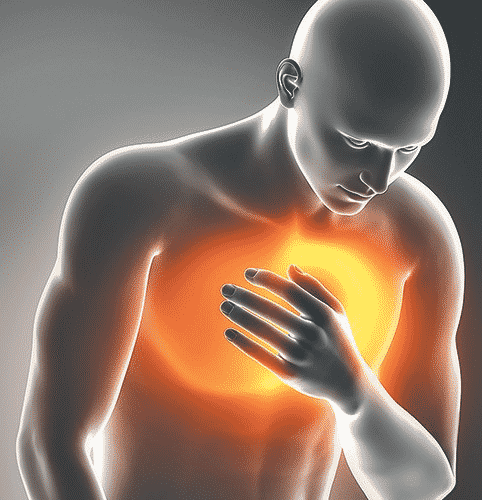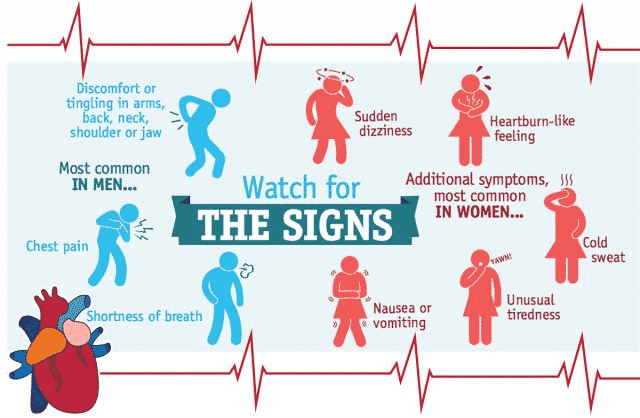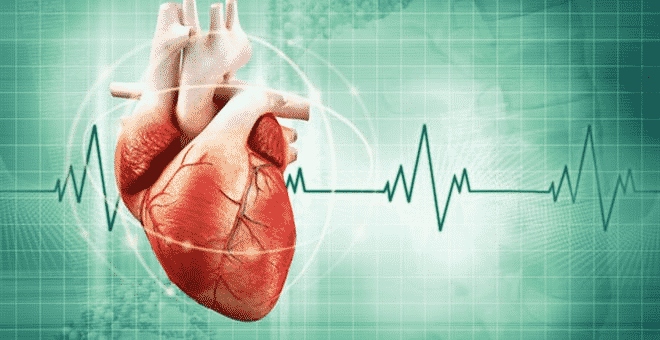Chest Pain – Is My Heart at Risk?
by Premier Hospitals | June 20, 2019 |
Pain emanating from the chest area is always viewed with suspicion and fear. Chest pain is usually synonymous with a heart attack. However, as much as chest pain may be a symptom of a heart problem, there are also other possible conditions causing pain in the chest area. Some of these conditions are life-threatening, while some are not so.
Earlier, in the 80s and 90s, there was a certain age, crossing which one would have contemplated about experiencing chest pain/heart problem. But, these days, there are instances reported widely in media about men and women in their mid-30s who have succumbed to heart attack, yielding to the stress that they were facing.
This displays the disastrous effect that changes in habits (lifestyle), and environmental change have brought about on our health. Diagnostic testing centers in Hyderabad alone have seen a surge in customers opting for cardiac profiles to evaluate their heart function.
Let’s get into details to delineate which chest pains are to be worried about and which ones are not.
What body parts are located in the chest area?
 The chest or the upper body also called as thorax, is located in between the neck and the abdomen. It encompasses organs such as heart, lungs, thymus gland, as well as neck and shoulder muscles, ribs and various other internal structures such as the trachea, oesophagus, diaphragm, etc. Several conditions affect the chest area with their most common symptom being chest pain.
Internal systems that are available in the chest area are:
The chest or the upper body also called as thorax, is located in between the neck and the abdomen. It encompasses organs such as heart, lungs, thymus gland, as well as neck and shoulder muscles, ribs and various other internal structures such as the trachea, oesophagus, diaphragm, etc. Several conditions affect the chest area with their most common symptom being chest pain.
Internal systems that are available in the chest area are:
- Respiratory system
- Circulatory system
- Digestive system

- Muscle strain
- Injured ribs
- Peptic ulcers
- Gastroesophageal reflux disease (GERD)
- Asthma
- Costochondritis
- Oesophageal contraction disorders
- Oesophageal hypersensitivity
- Oesophageal rupture
- Hiatal hernia
- Tuberculosis
- Panic attack
- Pleurisy
- Pneumonia
- Pulmonary embolism

- In the chest area, chest wall, or spine, one can have muscle or bone problems
- Lung conditions: Diseases of the pleura, the tissue that covers the lungs
- Stomach problems, such as ulcers
- Stress, anxiety, or depression
- If the pain is only at a specific point on the chest
- The pain that lasts for only a few moments
- When pain is relieved by taking medication
- The pain gets relieved when the area of the chest is massaged
- Due to Acid reflux, a burning sensation is caused in the chest.
- Sudden, intense pain that lasts for several hours, disappears and returns due to gallstones.
- Angina: Stable Angina Unstable angina
- Heart attack
- Myocarditis
- Pericarditis
- Aortic aneurysm
- Cardiomyopathy
- Heart valve disease
- Heart arrhythmias
- Heart disease symptoms caused by heart infections
- Coronary artery disease
- Mitral valve Prolapse

It is advised to approach the emergency or a cardiologist at the earliest when experiencing this type of chest pain:
- Chest pain at rest
- Pain not relieved on taking medications
- Pain lasting longer than 20 minutes
- Pain that increases in severity with each episode
- Crushing type of chest pain
- Pain that is radiating to the neck, jaw, back, both arms or hands
- Pain associated with breathing difficulty, palpitations, sweating and vomiting
- Electrocardiogram (ECG)
- Echocardiography (2D Echo)
- Cardiac enzymes (Trop I, Trop T or CPK/CK-MB)
- Coronary angiogram
- Cardiac MRI
- Coronary CT angiography
- Holter monitor
- Transesophageal echocardiogram
- Myocardial perfusion imaging
- Electrophysiology study
 Risk Factors of Heart Disease:Â
There are many risk factors involved in the development of heart diseases. Some of them you can control, whereas others you can’t.
Risk Factors of Heart Disease:Â
There are many risk factors involved in the development of heart diseases. Some of them you can control, whereas others you can’t.
- Age
- Sex
- Family history of heart disease
- Smoking
- Poor diet
- High blood cholesterol levels
- Diabetes
- Obesity
- Physical inactivity
- Stress
- Poor hygiene
- Unhealthy Lifestyle















